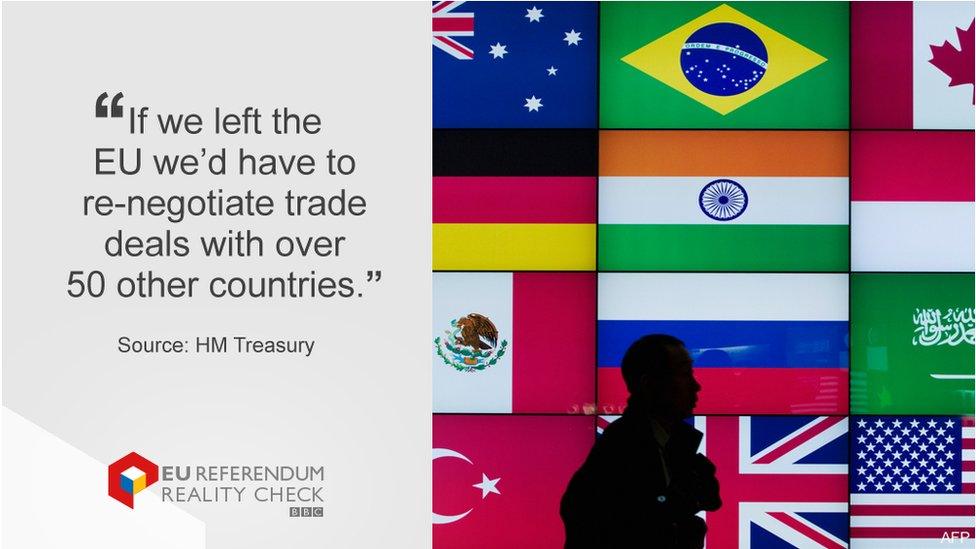Reality Check: Would UK have to make new trade deals?
- Published

Treasury analysis on the costs and benefits of European Union membership says if the UK left the EU it would "have to re-negotiate trade deals with over 50 other countries". Would we?
The European Commission lists all the trade deals which the EU has already in place with the rest of the world, external.
The tally includes 22 bilateral trade agreements - agreements between the EU and just one other country - and five multi-lateral agreements.
Multilateral agreements include the deals with groups of countries such as CARIFORUM which represents 16 Caribbean nations, external.
If you don't take into account agreements with Norway, Iceland and Switzerland, which are fully integrated in the EU Single Market, or the agreements with Andorra, San Marino and Turkey, which enjoy a customs union with the EU, the number of individual countries covered by the EU trade deals comes to 52.
The agreements vary in depth and breadth. Some are deep and comprehensive and have taken years to finalise - for example the trade deal with Korea - while others are much lighter, offering less access. Those include association agreements with countries such as Tunisia, Morocco and Israel and a cooperation agreement with Syria.
In addition to the existing trade deals, the EU is currently negotiating trade deals with several other countries. The biggest and the most important of them is the free trade deal with the US - the Transatlantic Trade and Investment Partnership or TTIP.
The EU has also concluded a free trade deal with Canada which should take effect in 2017. And it has recently agreed with Australia and New Zealand to start free trade deal negotiations in the near future.
All the experts we have contacted when we previously looked into what trade benefits the UK could keep if it left the EU said that negotiations would be required if these agreements were to continue providing enhanced market access for the UK business. It would not be up to the UK only, but also to the other countries which would base their negotiating positions on their own interests.
Britain is a large market, so there is a clear incentive for these countries to negotiate and those who favour leaving the EU argue that it is in nobody's interest to interrupt the current trading partnerships.
Reality Check verdict: Yes, the UK would have to renegotiate the current trade deals, although some would be easier to nail down than others.


READ MORE: The facts behind claims in the EU debate


READ MORE: The facts behind claims in the EU debate
